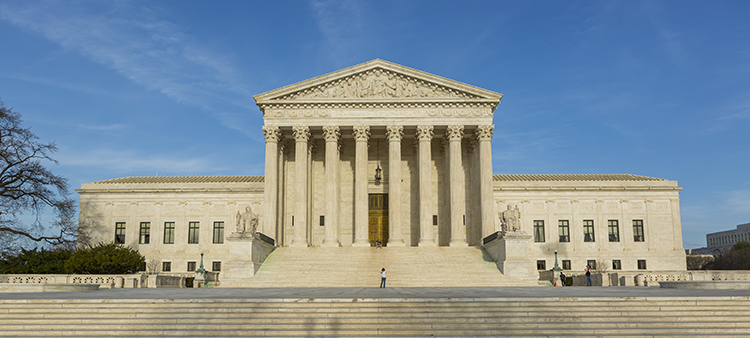Law prof isn't sure whether Florida blogger bill applies to him, says second bill would help cop defamation suits

Image from Shutterstock.
Republican Florida Gov. Ron DeSantis and the Republican-dominated state legislature are “willing to take their chances in court” with performative legislation that goes beyond the law as it currently stands, according to Howard Wasserman, a professor at the Florida International University College of Law.
New bills that would weaken protections for journalists and require paid bloggers to register with the state are in keeping with that trend, according to Wasserman.
The constitutionality of the blogging bill is an easy call. It’s “completely unconstitutional,” Wasserman told the ABA Journal. “This isn’t even close.”
The bill, Senate Bill 1316, would require paid bloggers who write about elected state officials to register with the state and file monthly reports on the posts.
Elected state officers are defined in the bill as the governor, the lieutenant governor, a cabinet officer or a state lawmaker. Websites for newspapers and similar publications are exempted from the bill’s requirements.
Those who have to comply must file monthly reports that identify who paid for the blog posts and the amount of compensation. The fine for a late report is $25 per day for each late day, capped at $2,500.
One “irreducible minimum” of First Amendment law is that the government can’t condition the ability to speak on getting its permission, Wasserman says.
A second problem is that the registration and reporting requirement makes constitutionally protected anonymous speech impossible, Wasserman says. That’s because bloggers who obey the registration mandate would have to reveal their identity.
The second bill that weakens protections for journalists is House Bill 991.
If the bill passes and is found to be valid, Wasserman says, “it cuts a big swath into New York Times v. Sullivan,” the 1964 U.S. Supreme Court decision that requires defamation plaintiffs who are public figures to show actual malice to recover damages.
Justices Clarence Thomas and Neil Gorsuch have called for a reexamination of the First Amendment ruling.
House Bill 991 redefines “public figure” in a way that makes it easier for police officers and limited public figures, such as Kenosha, Wisconsin, shooter Kyle Rittenhouse—who thrust himself into controversy—to sue critics, Wasserman says.
That fits with DeSantis’ views on Rittenhouse, who was acquitted for the shooting deaths of two people during police protests. DeSantis claimed that Rittenhouse was the victim of “corporate media lies,” according to reporting by Florida Politics.
House Bill 991 tries to protect police and accidental public figures by redefining who is a public figure that must prove actual malice. The bill says unelected and appointed public officials are not public figures. Nor are people whose notoriety stems from defending themselves against accusations, from granting an interview, or from an online video that has reached a wide audience.
“So a police officer who is accused of using excessive force who defends himself does not necessarily become a public figure,” Wasserman says. “That’s really problematic.”
Other provisions of House Bill 991 state that:
• Actual malice is inferred when allegations are “inherently implausible” or based on unverified statements by anonymous sources. “I don’t think you can do that because the burden has to be on the plaintiff … and because anonymous speech is constitutionally protected,” Wasserman says.
• A person isn’t considered a public figure who must show actual malice when the allegations at issue don’t relate to the reasons for that person’s public status. That means that a story about an elected official’s private or business life would not get actual-malice protection, according to an opinion story in the New York Times.
• It is per se defamation—meaning that damages don’t have to be proven—to allege that someone “discriminated against another person or group because of their race, sex, sexual orientation or gender identity.” Statutory damages are $35,000. A defendant can’t prove the truth of a sexual-orientation or gender-identity discrimination allegation by citing the plaintiff’s constitutionally protected religious beliefs or scientific beliefs.
The problem is that an allegation of discrimination is probably not a provable fact, Wasserman says. It’s a characterization, opinion or hyperbole, which are protected by the First Amendment, he says.
Wasserman blogged about both bills at PrawfsBlawg (here and here).
Would Wasserman be considered a paid blogger required to register under Senate Bill 1316?
“It depends on what you mean by paid,” he says. “The blog that I write for gets some limited ad revenue, and I am paid by the state and I blog. So I don’t know if I’m a paid blogger or not.”
The uncertainty points to another issue with the blogger bill: It might be void for vagueness, Wasserman says.
Hat tip to Free Press Action.



